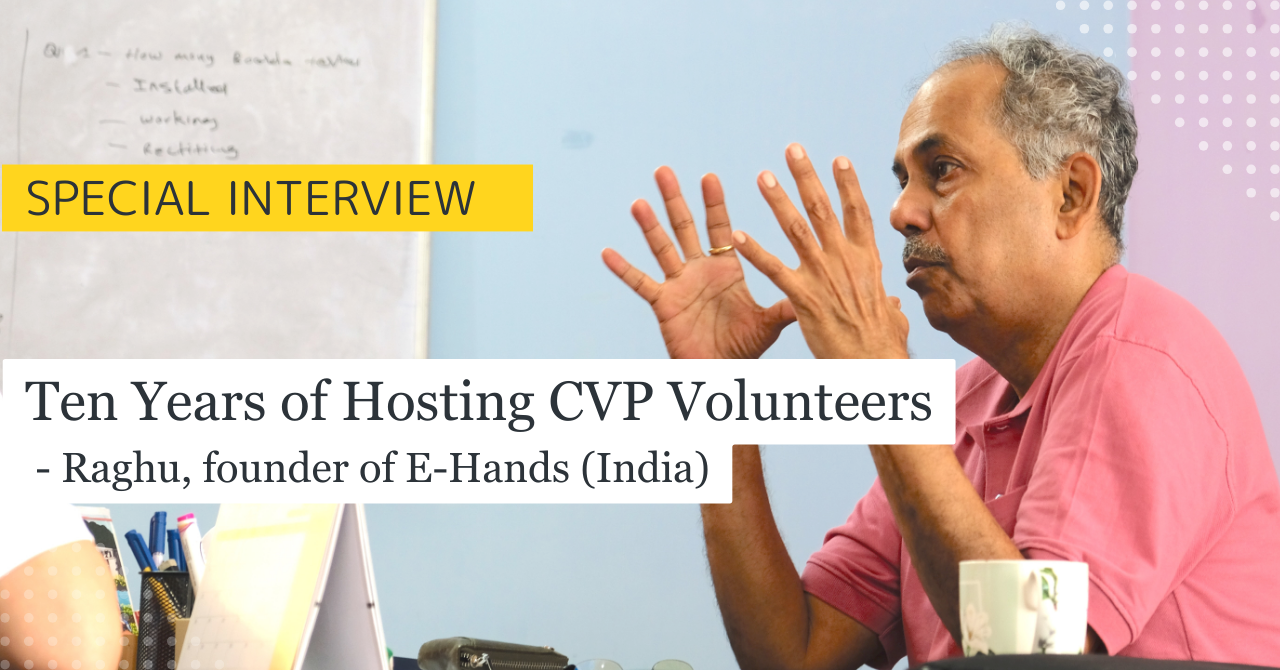
E-Hands is a social enterprise in India that provides affordable energy access to low-income communities in remote areas. Since 2014, E-Hands has accepted 22 volunteers from Cross Fields (10 onsite volunteers and 12 remote-working volunteers) and also collaborated with us in many other projects. Recently, Shohoko from our PR team interviewed Mr. Raghuraman Chandrasekaran (Raghu), the founder of E-Hands, on why he has decided to accept our volunteers and how collaborating with Cross Fields has impacted E-Hands.
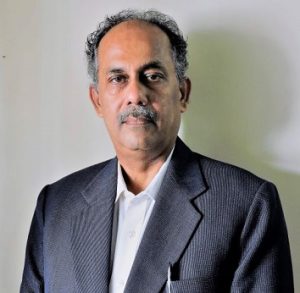
Raghu‘s 40 years of work includes long, sustained, resilient struggles as a Social Entrepreneur for over 15 years and leadership/CXO positions in leading, global organisation in the space of automobiles, pharmaceuticals, electronics component, IT/ITeS and Telecom.
—Please tell us more about E-Hands.
Raghu: E-Hands is a social enterprise that provides microgrid systems to low income communities in rural areas of India. We were founded in 2010 and now consist of 50 members. I originally worked in the business sector, in industries such as IT, pharmaceuticals, and automobile, but I founded E-Hands because I wanted to create a business that is socially meaningful.
Our main business is providing decentralized renewable energy (DRE) solutions; including microgrid systems, to people living in remote, rural areas. A microgrid is a system that enables energy self-sufficiency by combining power generation from renewable energy, such as solar and wind power, with a common power transmission and distribution system. As many rural areas in India still have no or limited access to electricity, microgrids provide an economical and environmentally friendly energy source.
With over 1000 DRE installations across India, E-Hands Energy is among World’s largest DRE project developers generating D-RECs (Decentralized Renewable Energy Certificates), contributing significantly to UN Sustainable Development Goals (SDGs).
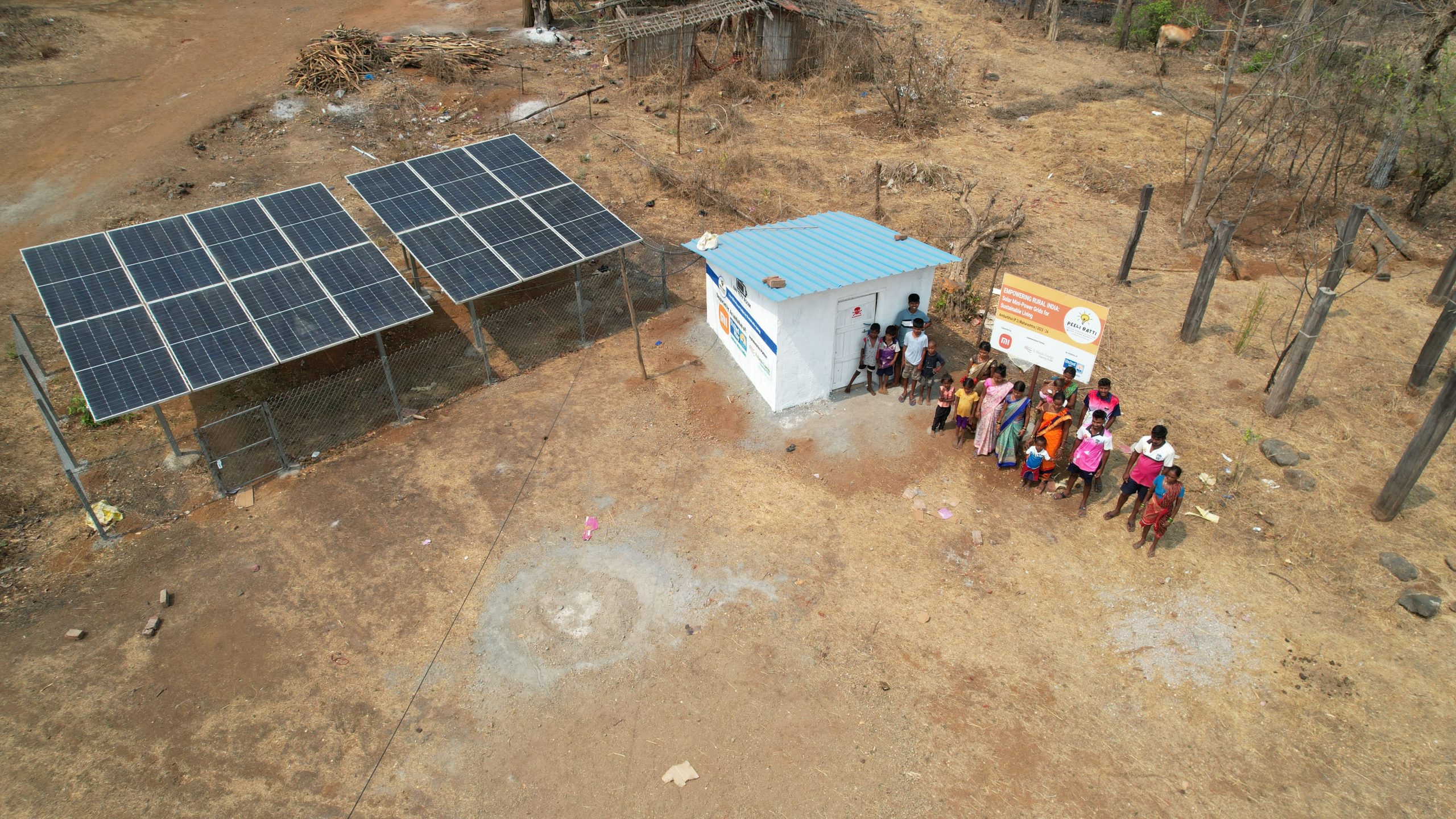
“Volunteers bring in new perspectives to the company”
—Why did you decide to accept volunteers from Cross Fields?
Raghu: The first volunteer we accepted from Cross Fields, back in 2014, was an engineer from a major electric equipment manufacturer. Since we already had experience in accepting volunteers before, we knew how important it was to be open to external resources, in order for the organization to develop sustainably. We therefore accepted the first volunteer from Cross Fields as a trial.
We had the first volunteer design the blades of a wind turbine; this was a great success and led to a new business. This experience convinced us that volunteers from Cross Fields were highly qualified and focused, with the potential to help solve our problems and accelerate new business. This is why we decided to continue accepting volunteers.
Also, E-Hands is a company that aims to create social impact. In order to save as much money as possible to run the business, the salaries of our managers are about half of the market rate, and I myself work without any salary. Even so, there are still many people who appreciate and empathize with what we do and become part of our team. The entire team of Senior management has been with us for almost 10 years.
The reason we value the volunteers from Cross Fields is because they have diverse business backgrounds in Japanese companies, such as engineering and sales. We not only expect them to become additional manpower, but also bring in new perspectives to the company. We want them to leverage their unique perspectives to create new businesses or improve our existing businesses. In fact, our past volunteers have come up with a variety of new business ideas.
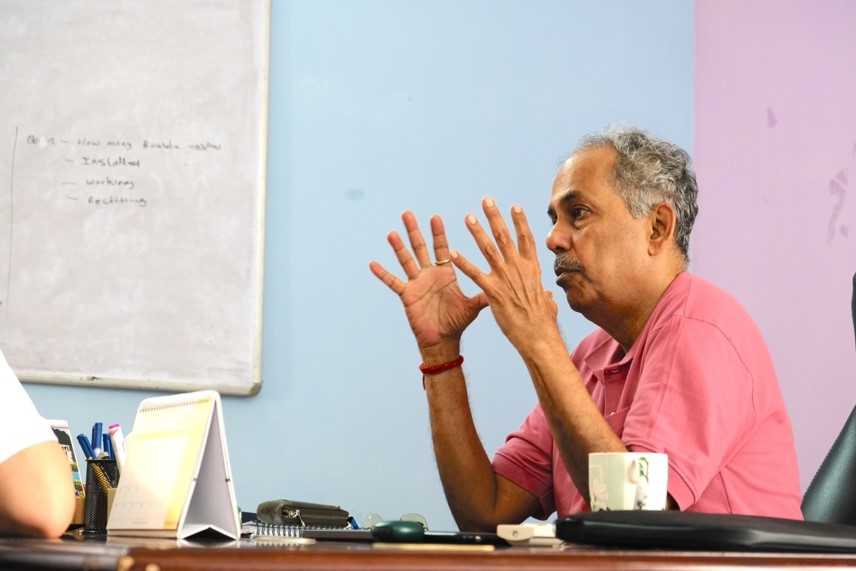
“They have greatly contributed to our mission”
—From your perspective, what were some changes that the volunteers brought to E-Hands?
Raghu: All of the past volunteers have greatly contributed to our mission, “to provide access to affordable energy,” which is what we have been striving toward since our founding.
For example, one volunteer worked on improving a solar power system in a high altitude area of the Himalayas. Although the area was very remote and inconvenient, he stayed in the remote village for several days to build a power generation system. This led to starting the social impact work of providing solar powered microgrid systems to the high altitude Himalayan area. At present, the system has been installed in 12 communities in the Himalayas, supporting the livelihoods of over 1000 people living there.
Another volunteer stayed in a rural village to propose a system that can utilize the electricity for livelihood- income generation activities from the microgrid system. At the same time, he also thought of new business ideas for villagers that utilized the power generated by the microgrids in the village.
There were other volunteers who created prototypes of a new system, and others who conducted trials of new businesses. Although not all of these projects were put into practice, I feel that all of the efforts taken were meaningful; we could not have done these trials on our own. Besides, all of these efforts by the 22 volunteers have added value to E-Hands Energy.
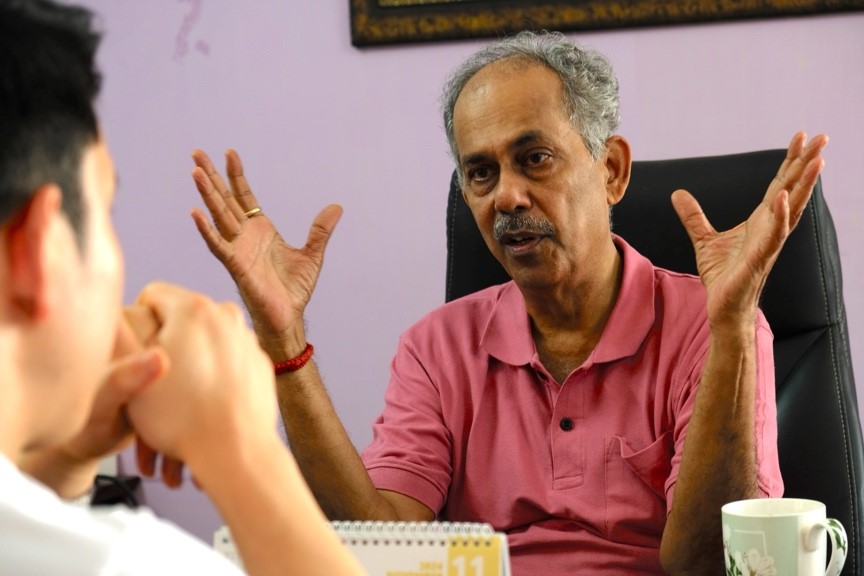
“I wish that more Japanese business leaders experience the social issues in India and bring them back home”
—Is there anything that you keep in mind when accepting new volunteers?
Raghu: I tell the members of E-Hands to learn as much as they can from the volunteers, such as business methods, data analysis skills, and the mindset to involve and collaborate with others.
I also tell them to share the culture, customs, and social issues of India with the volunteers. This is because I believe that when the volunteers one day take on a leadership role in their Japanese companies, they will already have knowledge and awareness of social issues in India, which would provide the additional competitive edge to the Japanese corporation. At that stage, we might be able to collaborate and create something of bigger impact together.
Since Japan is an important country for India’s development, I wish that more Japanese business leaders experience the social issues in India and bring them back home with them. I have also seen that each of these volunteers who worked with us in E-Hands Energy have gone through significant positive transformation in their leadership abilities, in terms of risk taking, visioning, dealing with unknown, compassion and many other qualities.
Also, it would be meaningful if the volunteers share their experiences to the people around them after returning to Japan, so that more Japanese people will learn and become interested in India.
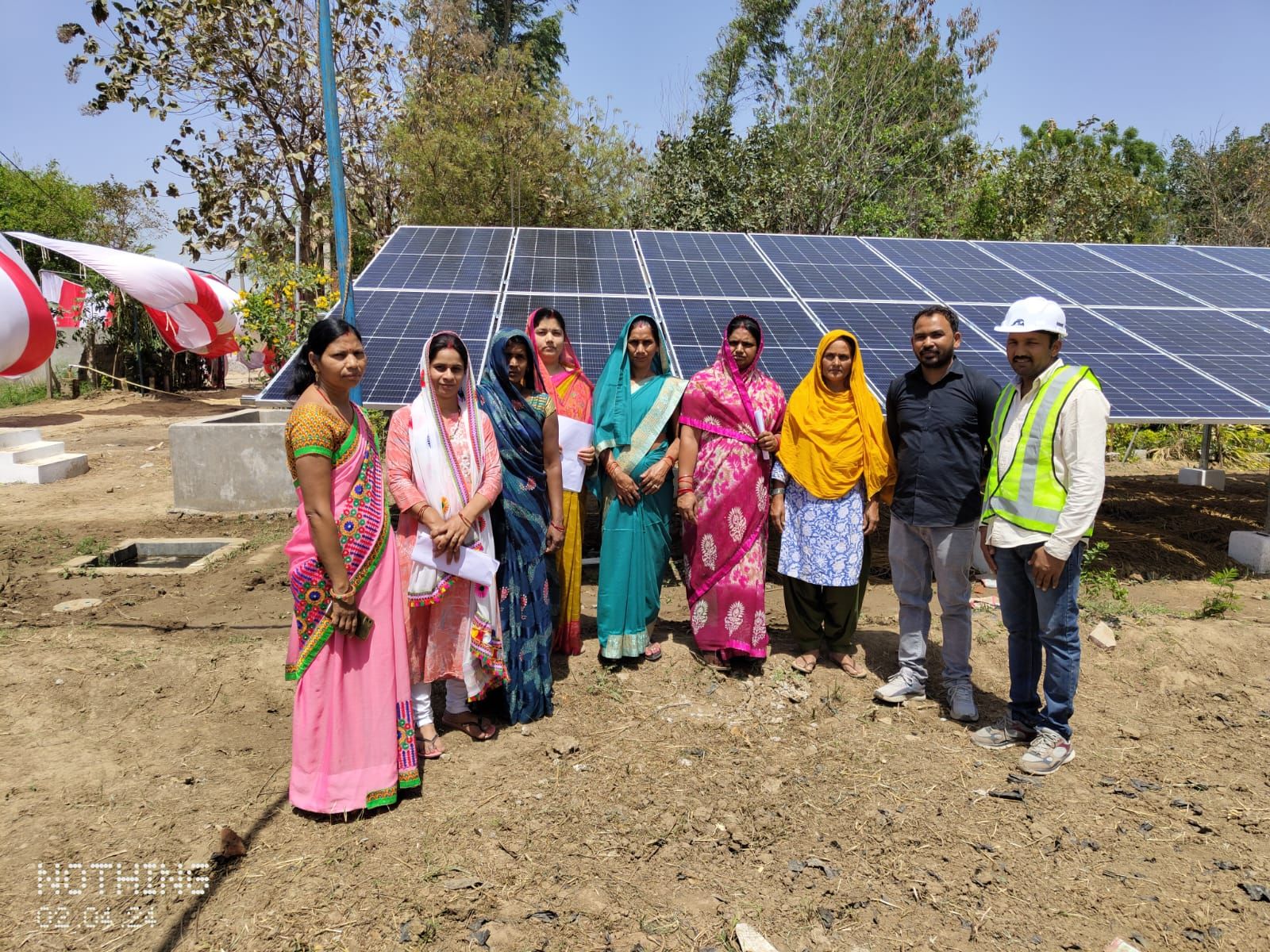
—Finally, what are your expectations for Cross Fields?
Raghu: We would like to continue accepting volunteers from Cross Fields, to help us achieve our mission and solve the social issues we are facing. We wish to collaborate with Cross Fields on other projects too, since you have a strong network with Japanese companies. I already have a few ideas in mind, so let’s keep the discussion going!
Afterwords
Since joining Cross Fields four years ago, it was my first time to accompany a volunteer overseas. Actually, this interview wasn’t planned at first…after speaking with the members of E-Hands, I thought that I needed to interview Mr. Raghu and ask why they keep accepting volunteers. Listening to his story made me realize how past volunteers have impacted his team, and made me imagine that this kind of impact has been made in other organizations too. We would like to continue to share the voices of our partners.
(Shohoko, Cross Fields PR team/ translated by Midori)
~Interested in hosting volunteers? ~
Thank you for reading this article! If your organization is interested in hosting volunteers or activities of Cross Fields, please contact us from this page.